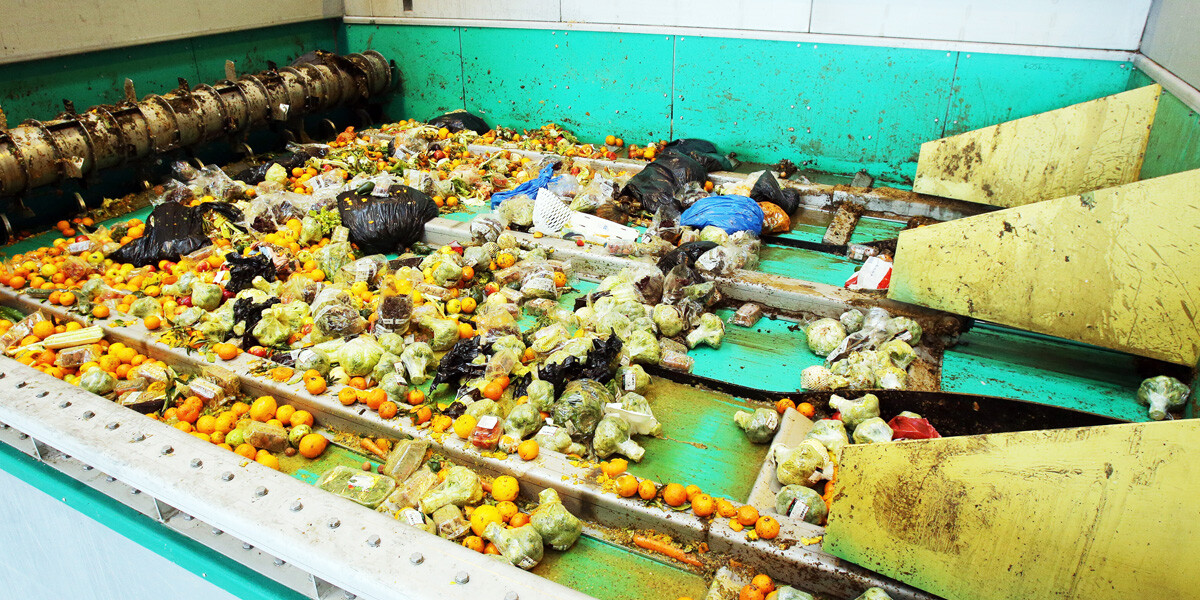How can we Correct the Balance between Food Production and Food Consumption?

Food waste is a challenging paradox: even though one in seven Americans is food insecure, as a nation and a global community one-third of all food is lost from farm to fork. Of that, one-third is food waste (from market to consumer); and two-thirds is post-harvest loss (from field to market). All food loss also has an environmental impact.
So how do we change systems to correct the balance between food production and food consumption? Leaders in the food and supply chain fields continue to search for answers to this question.
-3.jpg?width=1200&height=600&name=Farm%20to%20Trash%20session%20(1)-3.jpg) This is a topic that we care about and continue to engage our community to imagine innovative strategies to combat the issues surrounding food loss. At the 2017 Net Impact Conference we held a session dedicated to this topic, Farm to Trash: Disrupting the Food Waste Epidemic, led by Laura Asiala, Senior Fellow at PYXERA Global, Scott Boylston, Professor, Design for Sustainability at Savannah College of Art and Design, Eileen Hyde, Director Hunger and Healthy Eating at Walmart Giving, and Brittany Price, Director of Sustainable Operations at MGM Resorts International. The session dived into the sources and trends in the food waste epidemic and gave participants the opportunity to discuss real-world solutions with leading experts.
This is a topic that we care about and continue to engage our community to imagine innovative strategies to combat the issues surrounding food loss. At the 2017 Net Impact Conference we held a session dedicated to this topic, Farm to Trash: Disrupting the Food Waste Epidemic, led by Laura Asiala, Senior Fellow at PYXERA Global, Scott Boylston, Professor, Design for Sustainability at Savannah College of Art and Design, Eileen Hyde, Director Hunger and Healthy Eating at Walmart Giving, and Brittany Price, Director of Sustainable Operations at MGM Resorts International. The session dived into the sources and trends in the food waste epidemic and gave participants the opportunity to discuss real-world solutions with leading experts.
 Net Impact also participated in a Food Loss Twitter Chat: Defending the Harvest – Reducing Food Loss (#GEFlive) hosted by PYXERA Global with the Rockefeller Foundation, Feed the Future, and ADM Institute for the Prevention of Postharvest Loss. Key discussion areas focused on how organizations are addressing post-harvest loss through collaborations. Examples include how Feed the Future is bringing agricultural technologies to smallholder farmers in Bangladesh, Ethiopia, Ghana and Guatemala and The Rockefeller Foundation’s YieldWise initiative focused on fruits, vegetables, and staple crops in Kenya, Nigeria, and Tanzania.
Net Impact also participated in a Food Loss Twitter Chat: Defending the Harvest – Reducing Food Loss (#GEFlive) hosted by PYXERA Global with the Rockefeller Foundation, Feed the Future, and ADM Institute for the Prevention of Postharvest Loss. Key discussion areas focused on how organizations are addressing post-harvest loss through collaborations. Examples include how Feed the Future is bringing agricultural technologies to smallholder farmers in Bangladesh, Ethiopia, Ghana and Guatemala and The Rockefeller Foundation’s YieldWise initiative focused on fruits, vegetables, and staple crops in Kenya, Nigeria, and Tanzania.
The overall theme in both events is that food loss is solvable. Solutions are consistently being designed through partnerships, innovation, and commitment from all stakeholders including businesses, farmers, and consumers.
Are you interested in gaining hands-on experience in generating solutions on the timely topic of food loss? Host a local event to raise awareness in your community through the Food Solutions Challenge.




